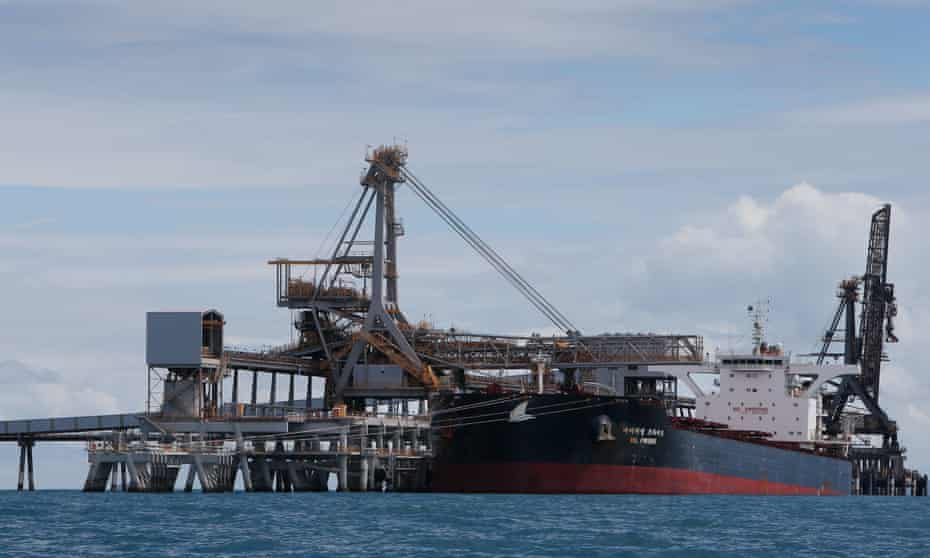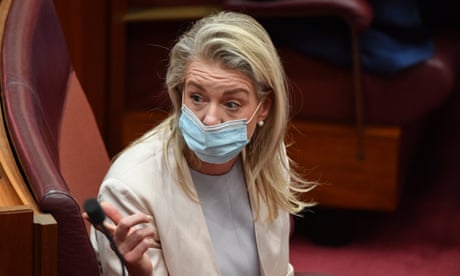Extract from The Guardian
Emissions reduction minister Angus Taylor says commenting on draft IPCC report doesn’t equate to running interference, as Greenpeace claims.

First published on Thu 21 Oct 2021 19.45 AEDT
Australia pushed back against a finding in a major climate report that fossil fuel power stations be urgently phased out, and requested the country be removed from a list of the world’s leading producers and consumers of coal, Greenpeace has said citing leaked documents.
Australia was among a handful of major fossil fuel exporting nations that sought to weaken the conclusions of the report, Greenpeace’s investigative arm, Unearthed, said on Thursday.
It released a report based on leaked documents related to the Working Group III paper on solutions to the climate crisis being prepared by the UN’s Intergovernmental Panel on Climate Change.
Guardian Australia has not seen the leaked documents. Greenpeace said only excerpts were being released due to “a justified concern in the scientific community about the publication of leaked reports from the IPCC before the scientific process for reaching their conclusions is complete”. The Working Group III report will not be finished until March 2022.
Australia, which is the world’s largest coal exporter and second-largest gas exporter, features prominently in the Unearthed report as rejecting the IPCC’s analysis that fossil fuels urgently need to be phased out of the world’s energy systems.
The draft IPCC report states coal- and gas-fired power stations need to be phased out and replaced by low- or zero-carbon electricity sources, according to Unearthed. Longer term, technologies such as hydrogen fuels or the capture and storage of carbon emissions from power plants should be tested and improved.
Australia, however, rejected this analysis, suggesting in comments to the draft that carbon capture could be deployed in the near term to avoid phasing out coal and gas power, Unearthed claims.
The report cites a senior official at Australia’s Department of Industry, Science, Energy and Resources as saying: “These remarks confuse the objective (eliminating emissions) with the means ‘retiring existing coal-fired power’. CCUS remains relevant to zero emissions”.
In a separate intervention, the Australian official suggested the country be deleted from a list of the world’s major producers and consumers of coal – despite Australia being the fifth-largest coal producer in the world between 2018 and 2021 – because the nation does not consume as much coal as other countries, Unearthed says.
Australia also objected to the IPCC’s analysis that lobbying by fossil fuel companies had weakened action on climate change in Australia and the US in particular.
“One factor limiting the ambition of climate policy has been the ability of incumbent industries to shape government action on climate change … Campaigns by oil and coal companies against climate action in the US and Australia are perhaps the most well-known and largely successful of these”, the draft IPCC report states, citing academic references, according to Unearthed.
But despite those references, the Australian official requested “deleting this political viewpoint made to seem factual”, Unearthed says.
A spokesperson for Angus Taylor, Australia’s energy and emissions reduction minister, said Australia’s position was not accurately reported.
“All comments received by the IPCC are published with their reports as they are finalised. This ensures complete transparency,” they said in a statement. “The assertion that commenting on a draft is somehow ‘interference’ is categorically false.”
The Australian government under Scott Morrison has stated it is unlikely to lift the country’s 2030 goal of cutting 2005-level emissions by 26-28% and continues to debate internally whether to accept a target of carbon neutrality by 2050.
That issue of net zero emissions also features in the Unearthed report, indicating the use of “carbon offsetting” in allowing companies and countries to reduce their emissions without phasing out fossil fuels will feature prominently at the Glasgow climate talks that begin on 31 October.
According to Unearthed, Australia in its submission challenged the IPCC assertion that “a growing body of research – usually drawn from experience with existing carbon markets and the Kyoto mechanisms – highlights environmental integrity risks associated with using Internationally Transferred Mitigation Outcomes [a form of carbon credit] under the Paris Agreement given the challenges that the diverse scope, metrics, types and timeframes of NDC targets pose for robust accounting (Schneider and La Hoz Theuer 12 2019) and the potential for transfers of ‘hot air’ as occurred under the Kyoto Protocol (La Hoz Theuer et al 2019).”
The Australian commentator inserted a note, according to Unearthed, stating: “Query the use of ‘growing’ (line 8) with reference to the body of research, as only 2 studies are referenced. Two studies does not seem a normal scale for a ‘growing body’ of research.”

Greenpeace Australia Pacific’s chief executive, David Ritter, said the leaked documents suggested the Morrison government was attempting to “trainwreck global climate progress”.
“What we see in these leaked documents is Morrison government officials in sabotage mode, rather than acting in good faith with the best interests of the Australian people to collaborate to secure ambitious global climate cooperation,” Ritter said in a statement.
“Scott Morrison has rejected setting a stronger 2030 emissions reduction target for Australia and now we know his government is pushing back against key recommendations by the world’s leading climate science body on the need to phase out coal over the next decade.”
Adam Bandt, the Australian Greens leader, said the Unearthed report showed the Coalition was “actively trying to prevent the rest of the world from stopping dangerous global heating”.
Federal Labor’s shadow climate spokesperson, Chris Bowen, said: ‘It’s not just Australians Mr Morrison is trying to hoodwink – he’s also trying to deceive our friends and allies in the international community.”
No comments:
Post a Comment